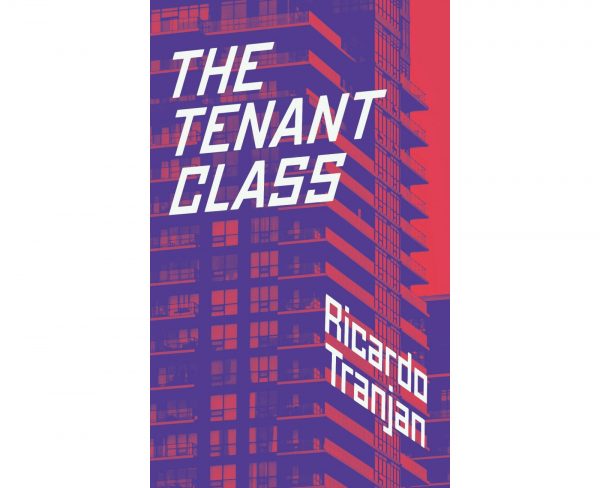The Tenant Class is trenchant, timely, and terrific. Ricardo Tranjan, a political economist and senior researcher at the Canadian Centre for Policy Alternatives, asks “who benefits” from the current housing crisis. His answer is that the housing market is working exactly as intended for maximum landlord profit.
Tranjan begins by providing the kind of class analysis that is often absent from Canadian housing policy discourse. Rather than a “crisis,” which he defines as an “event or series of events that represents a critical threat to the health, safety, security or well-being of a community,” Tranjan describes a situation where rents have doubled year-on-year as part of “a permanent state of affairs that harms people in, or in need of rental housing.” He then provides a history of tenant struggle that stretches back to the 19th century and ends with a call to “move as much provision as possible outside private markets; tightly regulate the remaining market provision; organize tenants to ensure quality and access.”
While I agree with his prescriptions and applaud his contributions to the history of tenant struggle, I find his analysis a little simplistic. Singapore directly provides 80% of housing; Vienna provides 60%. Denmark supports tenant unions, regulates rents and legislates to prevent financialization. All these jurisdictions are staunchly capitalist, increasingly xenophobic, and they abjure the rhetoric of class struggle. In Canada, new private-market rental was affordable to moderate-income renters, and homeownership was affordable to median-income households, in the 1960s and 1970s. Uncoincidentally, this was the era in which the highest level of social housing construction was directly supported by federal government. History isn’t a steady state, and politics are full of moral grey areas. Where I think Tranjan and I agree is that the cult of neo-liberalism has led to a crisis in Canada and throughout much of the world – which creates opportunities for radical change, for good or evil.
Tranjan has provided an informative call to arms on the issue that promises to dominate the next federal election. His book is worth reading by anyone interested in affordable housing, and his prescriptions ring true to the evidence on what works to progressively realize the right to adequate housing.
Carolyn Whitzman is a housing policy consultant and expert advisor to the Housing Assessment Resource Tools project (hart.ubc.ca). She is the author of “Clara at the Door with a Revolver: the scandalous Black suspect, the exemplary white son, and the murder that shocked Toronto” (UBC Press, 2023).




